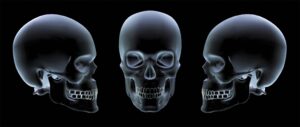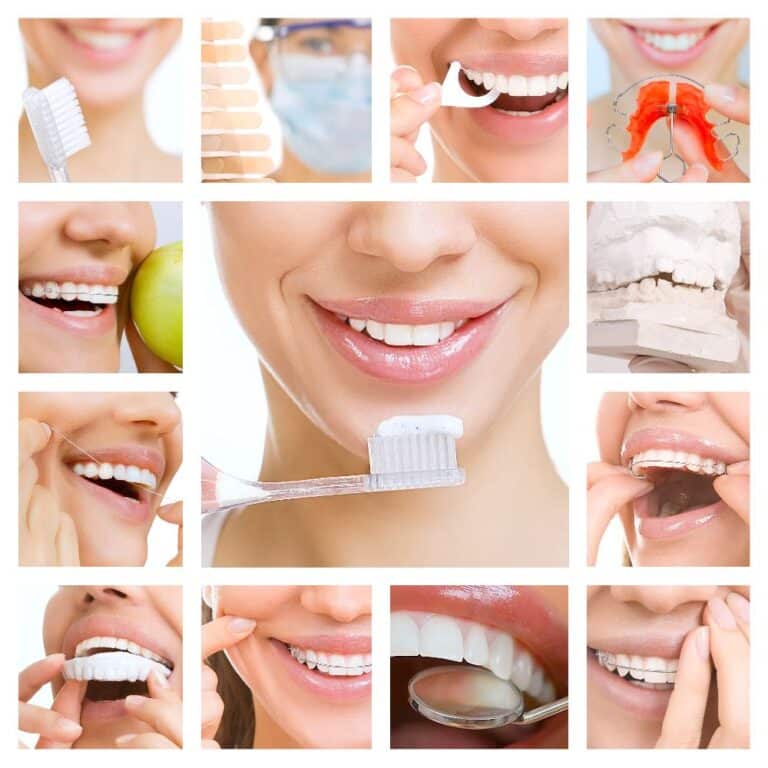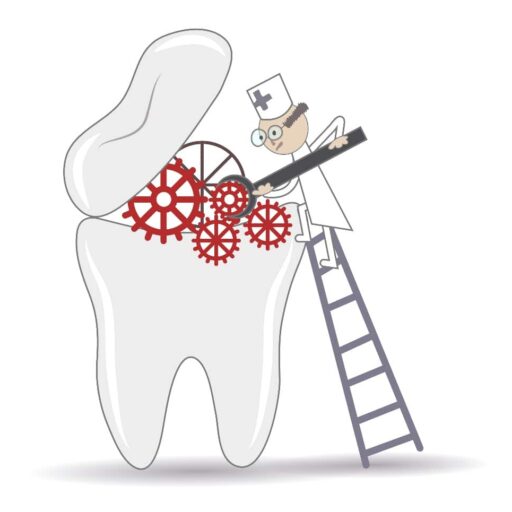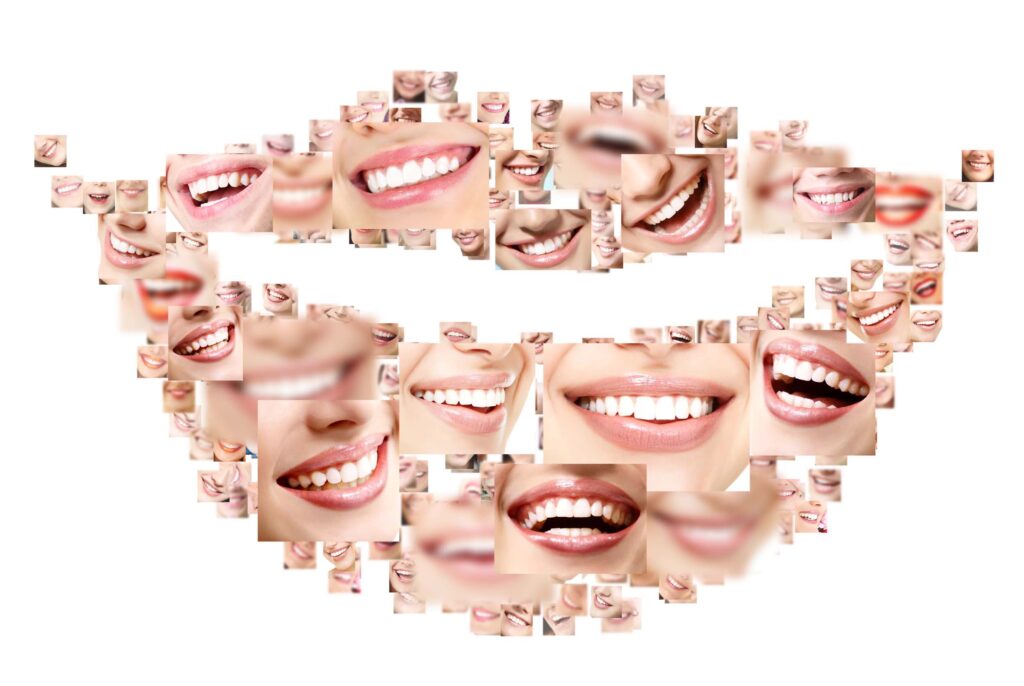Emergency Dentist Sydney



Sydney Emergency Dentist | General Dentist
Her range of services includes,
- Emergency Dentist Sydney
- Cracked Teeth
- Tooth Extractions
- Tooth Fillings
- Tooth Pain Relief
- General Dental Check-ups
- Scaling, Polishing and Fluoride
- X-Rays
- Sealants
- Dentures
- Mouthguards
- Occlusal Splints for Bruxism
Emergency Dentist Sydney
Sydney Emergency Dentist Dr Alps is dedicated to providing prompt and reliable dental care when you need it most. Dental emergencies can happen unexpectedly, causing severe pain or damage to your teeth and gums. We are here to provide immediate relief and expert treatment. We understand the urgency of dental emergencies and strive to offer same-day appointments and extended hours to accommodate your needs. With state-of-the-art facilities and advanced techniques, we are equipped to handle a wide range of dental emergencies, ensuring your comfort, safety, and optimal oral health. Trust Emergency Dentist Dr Alps to restore your smile and alleviate your dental concerns with compassion and efficiency.
What is an emergency dentist, and and what qualifies as a dental emergency?
An emergency dentist is a dental professional who is available to provide urgent dental care outside of regular business hours, often on evenings, weekends, and holidays. Emergency dentists are trained to handle a wide range of urgent dental issues, including severe tooth pain, broken or chipped teeth, lost fillings or crowns, abscesses, and more.
If you experience a dental emergency outside of regular business hours, it’s important to seek treatment as soon as possible. Delaying treatment can increase the risk of further damage, infection, and pain. Dr Alps is a Sydney emergency dentist who offers same-day appointments or walk-in services, so you can receive prompt care when needed.
In some cases, you may be able to manage your symptoms at home until you can see an emergency dentist. For example, if you have a broken or chipped tooth, rinse your mouth with warm water and apply a cold compress to the affected area to reduce swelling. If you’re experiencing severe pain, over-the-counter pain relievers may help in the short term.
However, if your symptoms are severe or don’t improve with self-care measures, it’s important to seek professional care as soon as possible.
A skilled emergency dentist in Sydney such as Dr Alps can provide the expert care you need to manage your symptoms, prevent further damage, and restore your oral health.
General Dental Check-ups
General dental check-ups are an important part of maintaining good oral health. During a check-up, Dr Alps will examine your teeth, gums, and mouth to look for any signs of problems, such as tooth decay, gum disease, or oral cancer.
During a general dental check-up, Dr Alps will typically:
- Clean your teeth to remove any plaque and tartar that have built up on the surface of your teeth.
- Examine your teeth and gums to look for any signs of tooth decay or gum disease.
- Check your bite to make sure your teeth are coming together properly.
- Take x-rays of your teeth to look for any problems that may not be visible during the examination.
- Check your mouth for any signs of oral cancer, such as sores, red or white patches, or lumps.
- Discuss any concerns you may have about your oral health and offer advice on how to improve your oral hygiene.
Dr Alps recommends that adults have a general dental check-up every six to 12 months, depending on their individual needs. Children and teenagers may need to visit more often, as their teeth and gums are still developing and are more susceptible to decay and other problems.
During a general dental check-up, it’s important to be open and honest with Dr Alps about any concerns you may have about your oral health. Dr Alps can provide you with advice and treatment options to address any problems and help you maintain good oral health.
In addition to regular check-ups, good oral hygiene is essential for maintaining healthy teeth and gums. This includes brushing your teeth twice a day with a fluoride toothpaste, flossing daily, and using mouthwash to kill bacteria and freshen your breath. Avoiding sugary and acidic foods and drinks, as well as tobacco and alcohol, can also help to protect your teeth and gums.
Overall, general dental check-ups are an important part of maintaining good oral health. By visiting Dr Alps regularly and practicing good oral hygiene, you can help to prevent problems with your teeth and gums and keep your mouth healthy and pain-free.
Scaling, Polishing and Fluoride
Scaling, polishing, and fluoride treatment are commonly performed dental procedures that are designed to remove plaque and tartar from the teeth, improve the appearance of the teeth, and protect the teeth from decay.
Scaling is a process in which Dr Alps uses special instruments to remove plaque and tartar from the surface of the teeth. Plaque is a sticky film of bacteria that forms on the teeth and can lead to tooth decay and gum disease if not removed. Tartar, also known as calculus, is a harder, calcified form of plaque that forms when plaque is not removed and can be more difficult to remove.
During the scaling process, Dr Alps will use a scaling instrument, such as an ultrasonic scaler or a hand scaler, to loosen and remove the plaque and tartar from the teeth. This can help to prevent tooth decay and gum disease, and improve the overall health of the teeth and gums.
After the scaling process is complete, Dr Alps will typically perform a polishing procedure to remove any remaining plaque and tartar, and to smooth the surface of the teeth. This can help to improve the appearance of the teeth and make them feel smoother and cleaner.
Fluoride treatment is a process in which Dr Alps applies a fluoride gel, foam, or varnish to the teeth. Fluoride is a mineral that can help to strengthen the teeth and make them more resistant to tooth decay. The fluoride is applied to the teeth using a small brush or tray, and is left on the teeth for a few minutes before being rinsed off.
Scaling, polishing, and fluoride treatment are typically performed during a regular dental check-up. The length of the procedure will vary depending on the individual patient, but it is usually completed in one visit.
Scaling, polishing, and fluoride treatment are safe and effective procedures that can help to improve the health of the teeth and gums. They can help to prevent tooth decay and gum disease, and improve the overall appearance of the teeth. By visiting Dr Alps regularly for these procedures, you can help to maintain good oral health and keep your teeth and gums healthy.
X-Rays
Dental x-rays are an important diagnostic tool used by Dr Alps to identify problems that may not be visible during a routine examination. X-rays are a type of radiation that is used to create images of the teeth and surrounding structures, such as the jaw and gums.
There are several different types of dental x-rays, including:
Bitewing x-rays: These x-rays are taken with the patient biting down on a special film holder. They provide images of the upper and lower teeth on one side of the mouth, and are used to identify decay between the teeth.
Periapical x-rays: These x-rays are taken with the x-ray film placed at the end of the tooth, next to the root. They provide images of the entire tooth, from the crown to the end of the root. Periapical x-rays are used to diagnose problems with the root of the tooth, such as infection or abscess.
Panoramic x-rays: These x-rays provide a broad view of the entire mouth, including the teeth, jaws, and surrounding structures. Panoramic x-rays are often used to evaluate the position of unerupted teeth, such as wisdom teeth, and to identify problems with the jaw or Temporomandibular joint (TMJ).
Dental x-rays are typically performed in Dr Alps’s office and are a safe and painless procedure.
Tooth Fillings
Tooth fillings are a common dental procedure used to repair and restore teeth that have been damaged by decay. Fillings are used to fill in the holes or cavities that are created when bacteria and plaque eat away at the enamel of the tooth. This helps to prevent further damage to the tooth and restore its strength and function.
There are several types of tooth fillings available, each with its own unique set of benefits and drawbacks. The most common types of fillings are amalgam fillings, which are made from a mixture of metals including silver, copper, and tin; composite fillings, which are made from a mixture of plastic and glass; and porcelain fillings, which are made from a type of ceramic material.
Amalgam fillings have been used for many years and are known for their durability and strength. They are also relatively inexpensive, making them a popular choice for patients who are on a budget. However, amalgam fillings are not as aesthetically pleasing as other types of fillings and can cause some discomfort for patients who are allergic to the metals used in the filling.
Composite fillings, on the other hand, are more aesthetically pleasing and can be matched to the color of the tooth. This makes them a good choice for patients who want to maintain a natural-looking smile. Composite fillings are also less likely to cause discomfort for patients who are allergic to the metals used in amalgam fillings. However, composite fillings are not as durable as amalgam fillings and may need to be replaced more frequently.
Porcelain fillings, also known as inlays or onlays, are made from a type of ceramic material that is strong and durable. They are also highly resistant to staining, making them a good choice for patients who want to maintain a bright, white smile. Porcelain fillings are more expensive than other types of fillings, but they are long-lasting and can provide excellent results for patients.
When it comes to tooth fillings, it’s important to work with a skilled and experienced dentist like Dr Alps who can help you choose the right type of filling for your needs. Dr Alps will evaluate the condition of your tooth and recommend the best filling material to use. In some cases, Dr Alps may recommend a different type of treatment, such as a crown or a root canal, to repair the damaged tooth.
Overall, tooth fillings are a safe and effective way to restore teeth that have been damaged by decay. They can help to prevent further damage to the tooth and restore its strength and function. By working with a skilled and experienced dentist like Dr Alps, you can find the right type of filling to meet your needs and maintain a healthy, beautiful smile.
Sealants
-
Dental sealants are a common and effective way to protect teeth from decay and cavities. They are thin, plastic coatings that are applied to the chewing surfaces of the back teeth, where most cavities occur.
Sealants are usually applied to children’s teeth soon after their permanent molars come in, typically between the ages of six and twelve. However, adults who have never had sealants can also benefit from them, especially if they are prone to cavities.
The application of dental sealants is quick and painless. First, Dr Alps will clean and dry the teeth to be sealed. Then, they will apply an acidic solution to the chewing surfaces of the teeth, which helps the sealant to bond to the enamel. After rinsing and drying the teeth again, Dr Alps will apply the sealant in a thin layer, using a brush or applicator. The sealant will harden quickly, forming a protective barrier over the teeth.
One of the biggest advantages of dental sealants is that they can prevent cavities from forming in the first place. The grooves and pits on the chewing surfaces of the back teeth can be difficult to clean, even with regular brushing and flossing. Food and bacteria can get trapped in these areas, leading to the formation of cavities. Dental sealants fill in these grooves and pits, creating a smooth surface that is easy to clean and prevents bacteria from getting trapped.
Sealants are also a cost-effective way to protect teeth. They can last for several years with proper care, and they are much less expensive than fillings or other treatments for cavities. In fact, the cost of applying sealants is often covered by dental insurance, making them an affordable option for many families.
Overall, dental sealants are a simple and effective way to protect teeth from decay and cavities. They are especially beneficial for children, who are more prone to cavities due to their developing dental hygiene habits. However, adults can also benefit from sealants, especially if they have a history of cavities or are at high risk for developing them. Talk to Dr Alps about whether dental sealants are right for you or your child.
Tooth Pain Relief
Tooth pain can be a common and often uncomfortable problem, but there are several options available for relief. Tooth pain can be caused by a variety of factors, including tooth decay, infection, injury, or gum disease.
If you are experiencing tooth pain, the first step is to see Dr Alps, who will be able to diagnose the cause of the pain and recommend the appropriate treatment. In some cases, Dr Alps may be able to provide relief from the pain during the appointment.
There are several over-the-counter pain medications that can be effective in relieving tooth pain. It’s important to follow the instructions on the packaging and not exceed the recommended dose.
In addition to over-the-counter pain medications, there are several home remedies that can help to relieve tooth pain. These include:
- Applying a cold compress to the affected area to reduce swelling and numb the pain.
- Rinsing the mouth with warm saltwater to help reduce inflammation and kill bacteria.
- Chewing on a piece of clove or using clove oil to numb the pain and kill bacteria.
- Using over-the-counter topical numbing agents, to numb the pain.
If the tooth pain is severe or persists despite home remedies and over-the-counter pain medication, it’s important to see Dr Alps as soon as possible. Dr Alps may be able to provide additional relief from the pain and treat the underlying cause of the pain.
In most cases, tooth pain can be effectively managed with the appropriate treatment. By seeing Dr Alps and following the recommended treatment plan, you can find relief from tooth pain and maintain good oral health.
Cracked Teeth
Cracked teeth are a common dental problem that can cause a range of symptoms, including pain, sensitivity, and difficulty chewing. A cracked tooth can occur for a variety of reasons, including tooth decay, trauma, and grinding or clenching of the teeth.
There are several types of cracks that can affect teeth, including:
Craze lines: These are small, shallow cracks that only affect the enamel of the tooth and do not typically cause any symptoms.
Fractured cusps: These are cracks that affect the pointed part of the tooth, known as the cusp. They may cause pain when biting or chewing and can sometimes lead to tooth sensitivity.
Split tooth: This is a severe form of a cracked tooth in which the crack extends from the top of the tooth to the root. This type of crack can cause significant pain and may require root canal treatment or tooth extraction.
Cracked tooth syndrome: This is a condition in which a crack extends from the chewing surface of the tooth to the root, but is not visible on x-rays. This type of crack can cause intermittent pain and can be difficult to diagnose.
Treatment for a cracked tooth will depend on the type and severity of the crack. In some cases, a filling or crown may be used to repair the tooth and restore its function. If the crack is severe, root canal treatment may be necessary to save the tooth. In some cases, tooth extraction may be the only option.
It’s important to see Dr Alps as soon as possible if you suspect you have a cracked tooth. The earlier the problem is identified and treated, the better the chances of saving the tooth and avoiding further complications. Dr Alps will examine your teeth and take x-rays to diagnose the problem and recommend the appropriate treatment.
To prevent cracked teeth, it’s important to practice good oral hygiene, including brushing twice a day, flossing daily, and using mouthwash. Avoiding habits that can damage your teeth, such as chewing on hard objects or grinding your teeth, can also help prevent cracks. Additionally, regular dental check-ups can help identify problems early and prevent them from becoming more serious.
Overall, cracked teeth can cause significant pain and discomfort, and it’s important to seek treatment as soon as possible. By working with Dr Alps, you can identify the cause of the crack and find the best treatment to restore your tooth and your smile.
Mouthguards
Mouthguards are protective devices worn over the teeth to prevent injury to the mouth and teeth. They are commonly used in sports, such as football, hockey, and boxing, to protect the teeth and jaw from impact and injury. Mouthguards can also be used to protect the teeth from grinding and clenching at night.
There are several different types of mouthguards available, including:
Stock mouthguards: These are pre-formed mouthguards that are ready to wear. They are the least expensive and least comfortable option, and may not fit well or provide adequate protection.
Boil-and-bite mouthguards: These mouthguards are made of a soft, pliable material that is softened in boiling water and then molded to the teeth using finger and tongue pressure. They provide a better fit and more protection than stock mouthguards, but may still be bulky and uncomfortable.
Custom-fitted mouthguards: These mouthguards are made by a dentist using impressions of the patient’s teeth. They are the most expensive option, but provide the best fit and the most protection.
It’s important to choose the right mouthguard for your needs. For sports, a mouthguard should be comfortable, easy to breathe and speak through, and provide adequate protection for the teeth and jaw. For grinding and clenching, a mouthguard should be comfortable to wear and prevent the teeth from coming into contact with each other.
To use a mouthguard, it should be placed over the teeth and gently pressed into place. It’s important to clean the mouthguard regularly and bring it to dental appointments for check-ups and adjustments.
Mouthguards are an effective way to prevent injury to the teeth and mouth. By wearing a mouthguard during sports and other activities, you can help to protect your teeth and maintain good oral health. Talk to Dr Alps about the best mouthguard options for your needs.
Tooth Extraction
Tooth extraction is a dental procedure in which a tooth is removed from its socket in the bone. This may be necessary if a tooth is severely damaged, infected, or decayed, or if it is causing crowding or other problems in the mouth. Tooth extraction can also be performed as a preventive measure to avoid future problems.
There are two main types of tooth extraction: simple extraction and surgical extraction. Simple extraction is the more common type of extraction and is typically performed on teeth that are visible in the mouth. During a simple extraction, Dr Alps will use a dental instrument called an elevator to loosen the tooth from its socket and then remove it with a pair of forceps.
Surgical extraction is a more complex type of extraction and is typically performed on teeth that are not visible in the mouth, such as impacted wisdom teeth. During a surgical extraction, Dr Alps will make an incision in the gum tissue and remove any bone or tissue that is blocking access to the tooth. The tooth may then be removed in a similar manner to a simple extraction.
Both simple and surgical extractions are typically performed under local anesthesia, which numbs the area around the tooth to be extracted. In some cases, sedation may also be used to help the patient relax and feel more comfortable during the procedure. After the tooth has been extracted, Dr Alps will provide instructions for caring for the extraction site and managing any discomfort.
Recovery from tooth extraction can vary depending on the type of extraction and the individual patient. Most patients experience some swelling, bruising, and discomfort after the procedure, which can be managed with pain medication and ice packs. The extraction site may also bleed for a few hours after the procedure, but this should stop on its own.
It’s important to follow Dr Alps’s instructions carefully after a tooth extraction to help ensure a successful recovery. This may include avoiding certain foods and activities, such as drinking from a straw or smoking, and taking care to keep the extraction site clean. In most cases, patients can resume their normal activities within a few days, although the extraction site may take several weeks to fully heal.
Overall, tooth extraction is a safe and effective dental procedure that can be used to remove damaged, infected, or decayed teeth. By working with a skilled and experienced dentist like Dr Alps, patients can undergo tooth extraction with minimal discomfort and achieve a successful recovery.
Occlusal Splints for Bruxism
Bruxism is a common dental condition in which a person grinds or clenches their teeth, often during sleep. This can cause a range of problems, including tooth wear and damage, headaches, and jaw pain.
One of the most effective treatments for bruxism is the use of an occlusal splint, also known as a bite guard or night guard. An occlusal splint is a custom-made, removable appliance that is worn over the teeth to protect them from grinding and clenching. The splint is made of a soft, flexible material that allows the teeth to move slightly, but prevents excessive grinding and clenching.
There are two main types of occlusal splints:
Hard occlusal splints: These splints are made of a hard, acrylic material and are the most commonly used type of splint for bruxism. They provide a high level of protection for the teeth and can help to reduce grinding and clenching. However, they can be uncomfortable to wear and may cause some changes in the bite.
Soft occlusal splints: These splints are made of a soft, flexible material and are designed to be more comfortable to wear. They provide a lower level of protection for the teeth but may be more suitable for people with sensitive teeth or a sensitive bite.
Dr Alps will take impressions of your teeth to create a custom-fitted occlusal splint that is tailored to your individual needs. The splint will be made to fit your upper or lower teeth, depending on where you grind or clench the most. The splint will be fitted and adjusted to ensure a comfortable fit and to make sure it is effective in reducing grinding and clenching.
To use the splint, you will need to wear it every night while you sleep. It’s important to clean the splint regularly to remove bacteria and plaque, and to bring it to your dental appointments for regular check-ups and adjustments.
In most cases, an occlusal splint can be effective in reducing the symptoms of bruxism, including tooth wear and damage, headaches, and jaw pain. It can also help to prevent further damage to the teeth and improve overall oral health. However, it’s important to continue to practice good oral hygiene, including brushing and flossing, to maintain the health of your teeth and gums.
Overall, occlusal splints are an effective treatment option for bruxism and can help to protect the teeth from grinding and clenching. If you are experiencing symptoms of bruxism, talk to your dentist about whether an occlusal splint is right for you.
No Gap & Bulk Billing
Check out the rough estimate on our pricing page.



The Benefits of Preventive Dentistry
Preventive dentistry focuses on preventing dental problems and maintaining good oral health. This can involve a range of activities, including regular check-ups, cleanings, and education on proper oral hygiene techniques.
There are several benefits to practicing preventive dentistry, including:
Prevention of tooth decay and gum disease: Regular cleanings and check-ups can help to remove plaque and tartar, which can cause tooth decay and gum disease. By practicing good oral hygiene and visiting Dr Alps regularly, you can help to prevent these conditions and maintain healthy teeth and gums.
Early detection of dental problems: During a routine check-up, Dr Alps can identify any potential problems with the teeth and gums. This can include decay, infection, or other issues that may not be visible to the naked eye. By detecting problems early, Dr Alps can provide treatment to prevent the problem from getting worse.
Less expensive dental treatment: Preventive care is often less expensive than treatment for advanced dental problems. By practicing good oral hygiene and visiting Dr Alps regularly, you can prevent the need for more extensive and expensive treatments, such as fillings, root canals, or extractions.
Improved overall health: Good oral health is linked to overall health and wellbeing. By practicing good oral hygiene and visiting Dr Alps regularly, you can help to prevent dental problems that can affect your overall health, such as tooth loss, infection, and gum disease.
Preventive dentistry is an important part of maintaining good oral health. By practicing good oral hygiene, visiting Dr Alps regularly, and following her recommendations, you can help to prevent dental problems and maintain healthy teeth and gums.
Perfect Smile For That Perfect Big Day!

The perfect dress. The perfect backdrop. The perfect floral arrangements. The perfect venue. The perfect photos. Every couple wants everything perfect and just right for their wedding day. Everyone will see your smile, and the wedding photographs will get recorded for the history books. There’s no reason for your smile to not be perfect as well!
Smile Makeover Treatment Timeline | Wedding & Special Occasions


Family Dentist Sydney
- If you are seeking a Family General Dentist, who will attend to your unique needs and address your concerns, preventative, general, and cosmetic, get in touch.
- We’re happy to accept all major health funds, and claims can be filed on the spot through our HICAPS machine.
Dr Alps Thakkar raises the bar with her every treatment by providing a superior standard of care and is known for her clinical excellence, and her patients rest assured that the treatment they get is indeed state-of-the-art.
Dr Alps Thakkar endeavours to establish her reputation as one of Sydney’s most respected general and cosmetic dentists through a genuine dedication to her profession, the art & science of dentistry and the well-being of her patients.


